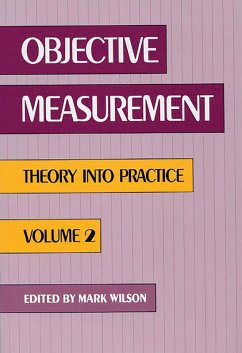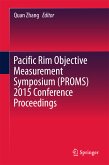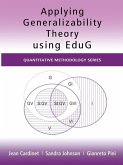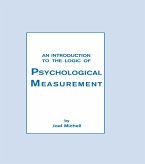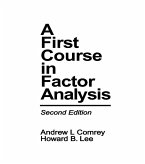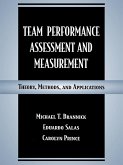35,95 €
35,95 €
inkl. MwSt.
Sofort per Download lieferbar

18 °P sammeln
35,95 €
Als Download kaufen

35,95 €
inkl. MwSt.
Sofort per Download lieferbar

18 °P sammeln
Jetzt verschenken
Alle Infos zum eBook verschenken
35,95 €
inkl. MwSt.
Sofort per Download lieferbar
Alle Infos zum eBook verschenken

18 °P sammeln
- Format: PDF
- Merkliste
- Auf die Merkliste
- Bewerten Bewerten
- Teilen
- Produkt teilen
- Produkterinnerung
- Produkterinnerung
- Weitere 5 Ausgaben:
- Gebundenes Buch
- Gebundenes Buch
- Broschiertes Buch
- Broschiertes Buch
- Broschiertes Buch

Bitte loggen Sie sich zunächst in Ihr Kundenkonto ein oder registrieren Sie sich bei
bücher.de, um das eBook-Abo tolino select nutzen zu können.
Hier können Sie sich einloggen
Hier können Sie sich einloggen
Sie sind bereits eingeloggt. Klicken Sie auf 2. tolino select Abo, um fortzufahren.

Bitte loggen Sie sich zunächst in Ihr Kundenkonto ein oder registrieren Sie sich bei bücher.de, um das eBook-Abo tolino select nutzen zu können.
This is the second volume in the series that focuses on the International Objective Measurement Workshops and the work of Georg Rasch. In the area of practice, two major clusters of new work are reported in this volume: a national pilot study of computer-adaptive testing in professional licensure and applications of a type of Rasch model called the Facet Model.
- Geräte: PC
- mit Kopierschutz
- eBook Hilfe
- Größe: 15.78MB
Andere Kunden interessierten sich auch für
![Invariant Measurement (eBook, PDF) Invariant Measurement (eBook, PDF)]() George Engelhard Jr.Invariant Measurement (eBook, PDF)52,95 €
George Engelhard Jr.Invariant Measurement (eBook, PDF)52,95 €![Pacific Rim Objective Measurement Symposium (PROMS) 2015 Conference Proceedings (eBook, PDF) Pacific Rim Objective Measurement Symposium (PROMS) 2015 Conference Proceedings (eBook, PDF)]() Pacific Rim Objective Measurement Symposium (PROMS) 2015 Conference Proceedings (eBook, PDF)161,95 €
Pacific Rim Objective Measurement Symposium (PROMS) 2015 Conference Proceedings (eBook, PDF)161,95 €![Applying Generalizability Theory using EduG (eBook, PDF) Applying Generalizability Theory using EduG (eBook, PDF)]() Jean CardinetApplying Generalizability Theory using EduG (eBook, PDF)43,95 €
Jean CardinetApplying Generalizability Theory using EduG (eBook, PDF)43,95 €![Cases and Stories of Transformative Action Research (eBook, PDF) Cases and Stories of Transformative Action Research (eBook, PDF)]() John A. BiloruskyCases and Stories of Transformative Action Research (eBook, PDF)43,95 €
John A. BiloruskyCases and Stories of Transformative Action Research (eBook, PDF)43,95 €![An Introduction To the Logic of Psychological Measurement (eBook, PDF) An Introduction To the Logic of Psychological Measurement (eBook, PDF)]() Joel MichellAn Introduction To the Logic of Psychological Measurement (eBook, PDF)49,95 €
Joel MichellAn Introduction To the Logic of Psychological Measurement (eBook, PDF)49,95 €![A First Course in Factor Analysis (eBook, PDF) A First Course in Factor Analysis (eBook, PDF)]() Andrew L. ComreyA First Course in Factor Analysis (eBook, PDF)50,95 €
Andrew L. ComreyA First Course in Factor Analysis (eBook, PDF)50,95 €![Team Performance Assessment and Measurement (eBook, PDF) Team Performance Assessment and Measurement (eBook, PDF)]() Team Performance Assessment and Measurement (eBook, PDF)57,95 €
Team Performance Assessment and Measurement (eBook, PDF)57,95 €-
-
-
This is the second volume in the series that focuses on the International Objective Measurement Workshops and the work of Georg Rasch. In the area of practice, two major clusters of new work are reported in this volume: a national pilot study of computer-adaptive testing in professional licensure and applications of a type of Rasch model called the Facet Model.
Produktdetails
- Produktdetails
- Verlag: Bloomsbury Publishing Inc
- Seitenzahl: 350
- Altersempfehlung: ab 7 Jahre
- Erscheinungstermin: 1. Januar 1994
- Englisch
- ISBN-13: 9780313390623
- Artikelnr.: 37839433
- Verlag: Bloomsbury Publishing Inc
- Seitenzahl: 350
- Altersempfehlung: ab 7 Jahre
- Erscheinungstermin: 1. Januar 1994
- Englisch
- ISBN-13: 9780313390623
- Artikelnr.: 37839433
- Herstellerkennzeichnung Die Herstellerinformationen sind derzeit nicht verfügbar.
MARK WILSON is Professor of Education at the University of Californai at Berkeley, specializing in the areas of educational assessment, educational evaluation and applied statistics. He has published 28 articles in refereed journals, edited four books, contributed 23 chapters to edited books, and made many presentations at meetings of professional groups.
HISTORICAL AND PHILOSOPHICAL PERSPECTIVES
Fundamental Measurement and the Fundamentals of Rasch Measurement
The Relevance of the Classical Theory of Measurement to Modern Psychology
The Rasch Debate: Validity and Revolution in Educational Measurement
Historical Views of the Concept of Invariance in Measurement Theory
PRACTICE
Computer-Adaptive Testing: A National Pilot Study
Reliability of Alternate Computer-Adaptive Tests
The Equivalence of Rasch Item Calibrations and Ability Estimates Across
Modes of Administration
Constructing Measurement with a Many-Facet Rasch Model
Development of a Functional Assessment That Adjusts Ability Measures for
Task Simplicity and Rater Leniency
Measuring Chemical Properties with the Rasch Model
Impact of Additional Person Performance Data on Person, Judge, and Item
Calibrations
THEORY
Local Independence: Objectively Measurable or Objectionably Abominable?
Objective Measurement with Multidimensional Polytomous Latent Trait Models
When Does Misfit Make a Difference?
Comparing Attitude Across Different Cultures: Two Quantitative Approaches
to Construct Validity
Consequences of Removing Subjects in Item Calibration
Item Information as a Function of Threshold Values in the Rating Scale
Model
Assessing Unidimensionality for Rasch Measurement
Author Index
Subject Index
Fundamental Measurement and the Fundamentals of Rasch Measurement
The Relevance of the Classical Theory of Measurement to Modern Psychology
The Rasch Debate: Validity and Revolution in Educational Measurement
Historical Views of the Concept of Invariance in Measurement Theory
PRACTICE
Computer-Adaptive Testing: A National Pilot Study
Reliability of Alternate Computer-Adaptive Tests
The Equivalence of Rasch Item Calibrations and Ability Estimates Across
Modes of Administration
Constructing Measurement with a Many-Facet Rasch Model
Development of a Functional Assessment That Adjusts Ability Measures for
Task Simplicity and Rater Leniency
Measuring Chemical Properties with the Rasch Model
Impact of Additional Person Performance Data on Person, Judge, and Item
Calibrations
THEORY
Local Independence: Objectively Measurable or Objectionably Abominable?
Objective Measurement with Multidimensional Polytomous Latent Trait Models
When Does Misfit Make a Difference?
Comparing Attitude Across Different Cultures: Two Quantitative Approaches
to Construct Validity
Consequences of Removing Subjects in Item Calibration
Item Information as a Function of Threshold Values in the Rating Scale
Model
Assessing Unidimensionality for Rasch Measurement
Author Index
Subject Index
HISTORICAL AND PHILOSOPHICAL PERSPECTIVES
Fundamental Measurement and the Fundamentals of Rasch Measurement
The Relevance of the Classical Theory of Measurement to Modern Psychology
The Rasch Debate: Validity and Revolution in Educational Measurement
Historical Views of the Concept of Invariance in Measurement Theory
PRACTICE
Computer-Adaptive Testing: A National Pilot Study
Reliability of Alternate Computer-Adaptive Tests
The Equivalence of Rasch Item Calibrations and Ability Estimates Across
Modes of Administration
Constructing Measurement with a Many-Facet Rasch Model
Development of a Functional Assessment That Adjusts Ability Measures for
Task Simplicity and Rater Leniency
Measuring Chemical Properties with the Rasch Model
Impact of Additional Person Performance Data on Person, Judge, and Item
Calibrations
THEORY
Local Independence: Objectively Measurable or Objectionably Abominable?
Objective Measurement with Multidimensional Polytomous Latent Trait Models
When Does Misfit Make a Difference?
Comparing Attitude Across Different Cultures: Two Quantitative Approaches
to Construct Validity
Consequences of Removing Subjects in Item Calibration
Item Information as a Function of Threshold Values in the Rating Scale
Model
Assessing Unidimensionality for Rasch Measurement
Author Index
Subject Index
Fundamental Measurement and the Fundamentals of Rasch Measurement
The Relevance of the Classical Theory of Measurement to Modern Psychology
The Rasch Debate: Validity and Revolution in Educational Measurement
Historical Views of the Concept of Invariance in Measurement Theory
PRACTICE
Computer-Adaptive Testing: A National Pilot Study
Reliability of Alternate Computer-Adaptive Tests
The Equivalence of Rasch Item Calibrations and Ability Estimates Across
Modes of Administration
Constructing Measurement with a Many-Facet Rasch Model
Development of a Functional Assessment That Adjusts Ability Measures for
Task Simplicity and Rater Leniency
Measuring Chemical Properties with the Rasch Model
Impact of Additional Person Performance Data on Person, Judge, and Item
Calibrations
THEORY
Local Independence: Objectively Measurable or Objectionably Abominable?
Objective Measurement with Multidimensional Polytomous Latent Trait Models
When Does Misfit Make a Difference?
Comparing Attitude Across Different Cultures: Two Quantitative Approaches
to Construct Validity
Consequences of Removing Subjects in Item Calibration
Item Information as a Function of Threshold Values in the Rating Scale
Model
Assessing Unidimensionality for Rasch Measurement
Author Index
Subject Index
